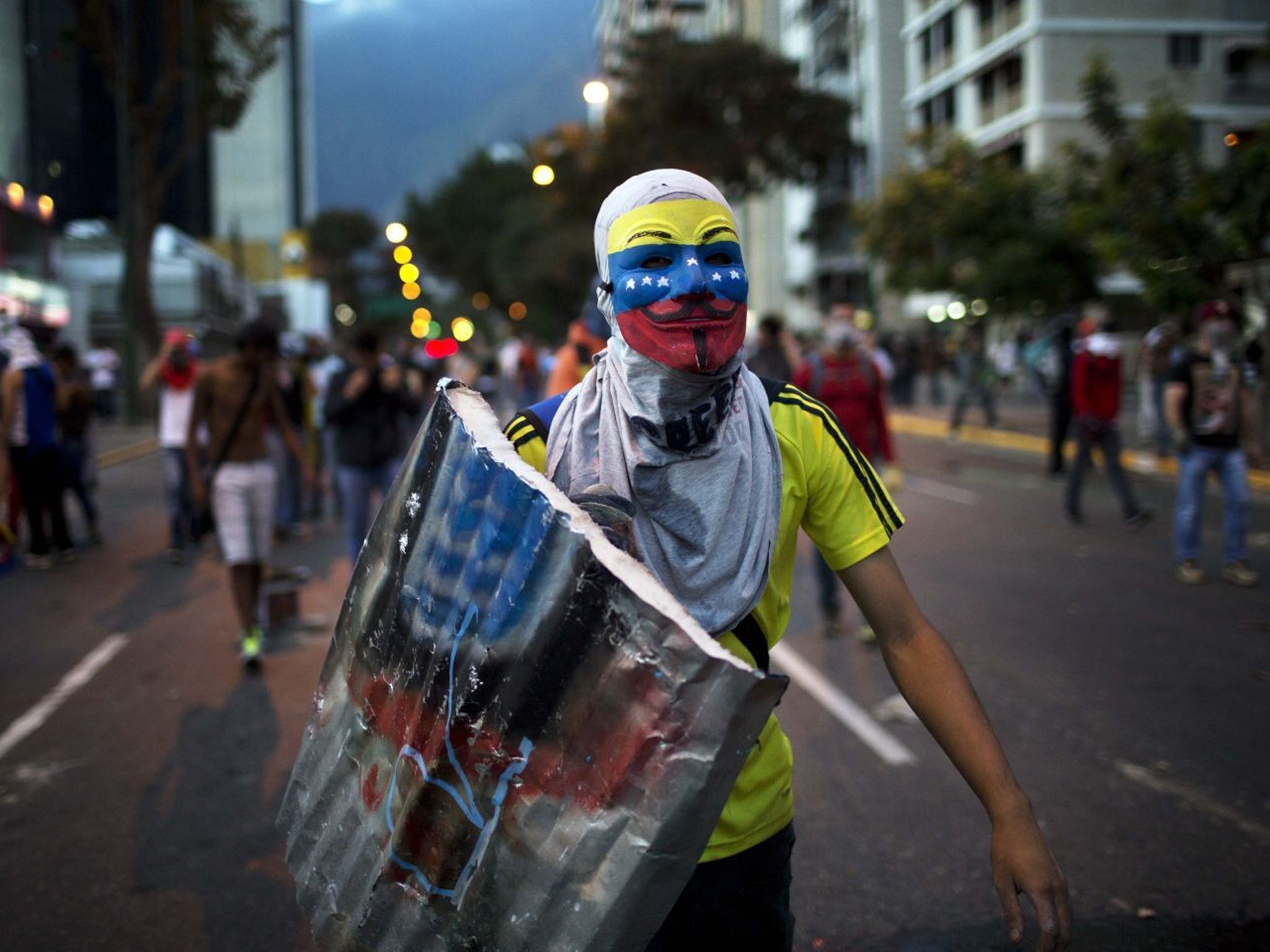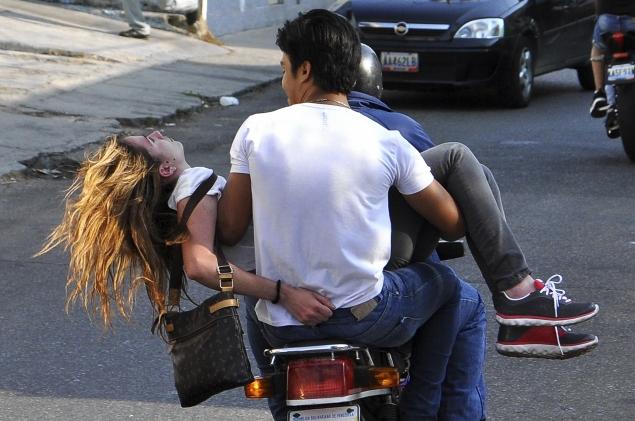What's President Obama got to do with the bloody protests in Venezuela?: Rally set for White House
More than 500 expected to demonstrate in Washington urging President to step into South American country's crisis

Your support helps us to tell the story
From reproductive rights to climate change to Big Tech, The Independent is on the ground when the story is developing. Whether it's investigating the financials of Elon Musk's pro-Trump PAC or producing our latest documentary, 'The A Word', which shines a light on the American women fighting for reproductive rights, we know how important it is to parse out the facts from the messaging.
At such a critical moment in US history, we need reporters on the ground. Your donation allows us to keep sending journalists to speak to both sides of the story.
The Independent is trusted by Americans across the entire political spectrum. And unlike many other quality news outlets, we choose not to lock Americans out of our reporting and analysis with paywalls. We believe quality journalism should be available to everyone, paid for by those who can afford it.
Your support makes all the difference.Barack Obama’s eyes are set on Ukraine and Russia, but there are foreign affairs matters closer to home that should remain a key focus.
More than 500 people are expected to rally outside the White House today urging him and his Government to lend his support and hear the call of freedom and respect for human rights in Venezuela on behalf of millions in the South American country who claim they are not being heard.
It has been nearly a year since Nicolás Maduro became president following the death of Hugo Chávez, but things have not gone smoothly. Maduro is seen by many Venezuelans as a puppet for the Castro brothers in Cuba, who are given around 80,000 barrels of oil a day for free. His tactics to calm the public, who have hit the streets in protests against scarcity and rampant crime, have seen him advance the date of the Christmas celebration in 2013, which many saw as an attempt to get him votes in the municipal elections on 8 December. Earlier this week, he declared an early start to the now week-long Carnival public holiday in effort to end the unrest.
However, in the eyes of many Venezuelans and natives living in the US, the violence has run from high to rampant in the past year. By the end of 2013 the rate of violent deaths was 79 per 100,000 population, representing 12 per cent of mortality in the country. Many in Venezuela feel unsafe and will not leave their homes after sunset. The situation is deteriorating with a crumbling economic crisis, shortages of food, medicines and other primary needs items.
In a speech earlier this week, Venezuela's Education Minister, Hector Rodríguez, said the Government did not want to bring people out of poverty because they could become middle class political opponents of the current regime. He said: “Not that we are going to get people out of poverty and bring them into the middle class, so that later they aspire to become ‘escuálidos’ [a popular Chavista term for political opponents].”

At least 16 people have been killed since 12 February during peaceful protests and 33 reported violations against human rights. This has led to the Venezuelan community in America feeling scared for the future of its country, especially after hearing Maduro blaming the violence on protesters. Among those killed include Venezuelan beauty queen Genesis Carmona (above) who was shot in the head when she attended her first protest on 18 February.
Despite poor relations between Venezuela and the United States (three US diplomats were expelled last month), the US-based Venezuelans are urging Obama for help and claim he could hold the key. This morning they are rallying on the side of the White House sidewalk in desperation for this aid.
Eugenia González, who has helped co-ordinate today’s demonstration, said: “We’re going because we can. We have the right to have an opinion and voice it without being detained or shot for it. Our families, our children at home are being stripped from basic human rights from freedom of expression and peaceful assembly to not being tortured, arbitrarily arrested without due process. We’ll be there because we can be. They cannot.”
US-based Venezuelans have seen their anger increase due to the media censorship in their homeland, leading the opposition to resort to social media outlets such as Twitter, Youtube, and WhatsApp to post their evidential photos and videos to keep each other informed. This has included allegations of rampant attacks by government officials and armed collectives in residential areas, and tweeted pictures of missiles transiting streets.
Táchira-born Walter Herrera said: “We seek to reach out to international organisations that can intervene and impose sanctions on those who indignantly violate the human rights of the Venezuelan citizens.”
All eyes might be sighting west, but Venezuelans believe one eye should be on them and hope Obama can assist in restoring civil liberty in their country once again.
Join our commenting forum
Join thought-provoking conversations, follow other Independent readers and see their replies
Comments